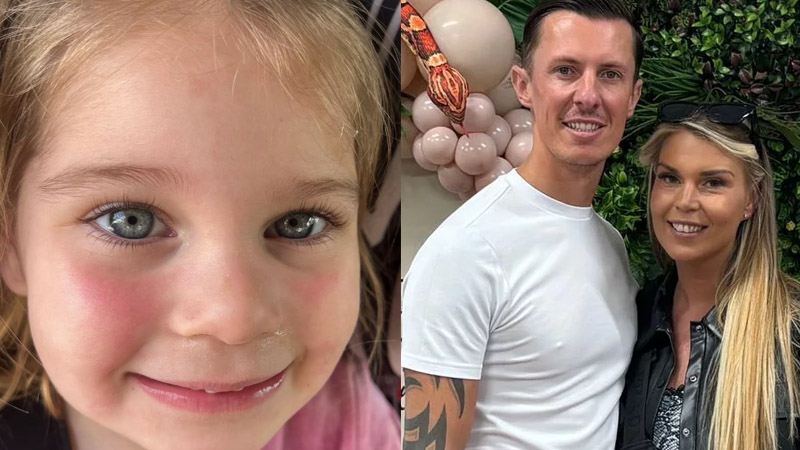Mother Warns of Parvovirus Risks After Losing Unborn Baby to Infection Spread by Toddler

(Image: SWNS)
Farran Wilkins, 35, and her partner Robert West, 34, faced the tragic loss of their unborn baby, Floss, at 25 weeks after a parvovirus infection spread through their family. Farran’s daughter Maple, from a previous relationship, contracted the virus at preschool in April, showing symptoms like fever, red cheeks, and a rash.
Commonly known as “slapped cheek” or parvovirus, the virus is typically harmless but can pose serious risks to pregnant women and their unborn children. At a scan in May, Farran received devastating news: her baby had developed hydrops fetalis, a life-threatening condition caused by severe anemia linked to parvovirus. Despite receiving a blood transfusion in utero, Floss could not recover and was stillborn on June 14, reported Surrey Live.
Complications also put Farran’s life at risk, as she developed mirror syndrome, a rare condition causing fluid buildup in her body. “This was the most heartbreaking thing we’ve ever been through,” Farran shared. “We had to make a choice to terminate the pregnancy for medical reasons. It wasn’t a choice at all—it was horrible. Floss and I could easily have both died.”
Farran now advocates for increased awareness about parvovirus among healthcare providers, educators, and pregnant women. “There needs to be more awareness—parvo is on the rise, and nobody is aware of the risks,” she emphasized. Farran noted that if she had known about the outbreak at her daughter’s preschool, she wouldn’t have sent Maple there while pregnant.
In a consultation early on, Farran raised concerns about her sore throat to her GP but was reassured there was no risk. She believes more information on parvovirus transmission is essential, particularly as many pregnant women have children in primary school or nursery settings where the virus can spread easily. “If I had known the risks, I’d have made different choices,” she said.
Farran’s doctor, Professor Ranjit Akolekar at Medway Hospital, diagnosed Floss with hydrops fetalis—a result of parvovirus crossing the placenta, leading to severe anemia. Floss’s blood became so diluted that it turned light yellow instead of red, and her body filled with fluid, signaling heart failure.
Despite medical interventions, Floss’s condition did not improve, and Farran’s life was increasingly endangered by mirror syndrome. In the end, they were forced to make the heartbreaking decision to end the pregnancy. Reflecting on the experience, Farran praised the care she received but called for better awareness to prevent future tragedies.
“There’s a terrible lack of information about parvo. So many pregnant women are at risk without knowing it.” Recent reports indicate that cases of human parvovirus (B19V) have risen in Europe, and Farran believes pregnant women should be better informed about the risks, particularly to unborn babies.


